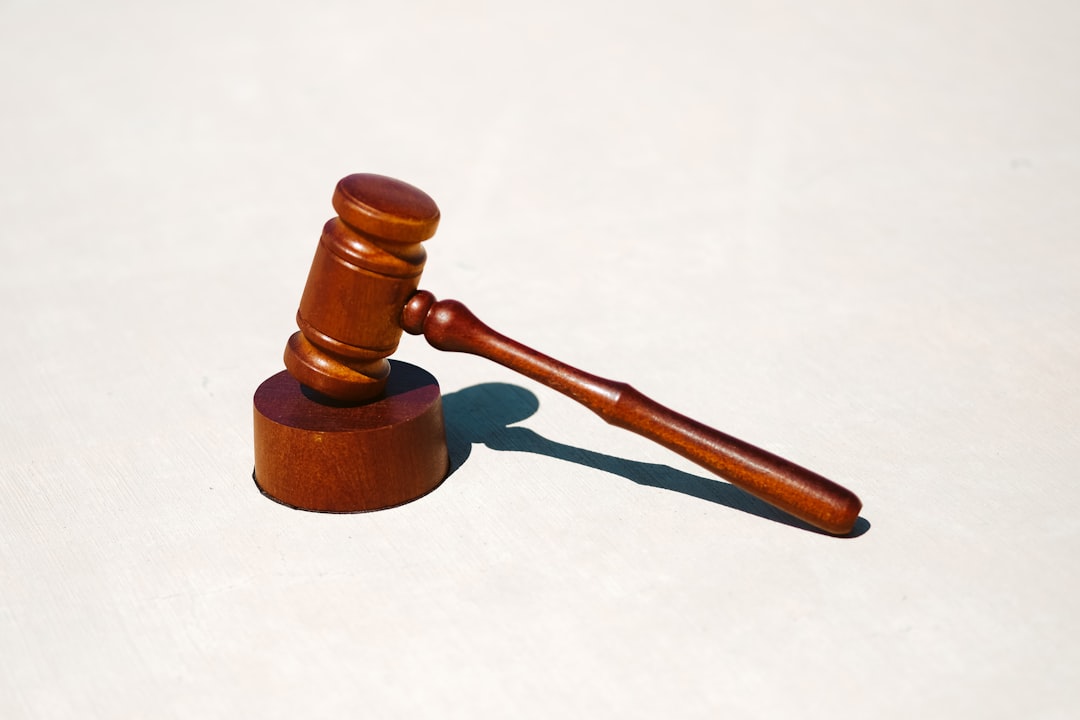Rape lawyers in Arkansas leverage DNA evidence as a powerful tool in sexual assault cases, offering precise identification and a game-changing approach for justice. With meticulous collection and analysis of genetic markers, these legal professionals navigate complex DNA evidence to exonerate the innocent or convict perpetrators. Strict protocols ensure fair handling, but human error can lead to false positives, emphasizing the need for specialized forensic labs and expert rape lawyers. By staying updated on advancements like whole-genome sequencing, they deliver effective trials for survivors across the state.
In the pursuit of justice, DNA evidence stands as a powerful ally in Forrest City’s rape trials. This article explores its transformative role, delving into the intricacies of understanding and utilizing DNA in criminal cases, particularly sexual assaults. We examine how advanced technology unravels complex scenarios, offering concrete answers where once there was only doubt. Additionally, we analyze Arkansas’ legal framework, the challenges faced by rape lawyers, and their crucial navigation of DNA evidence to ensure justice for victims.
Understanding DNA Evidence: A Cornerstone in Criminal Justice

DNA evidence has emerged as a powerful tool in the criminal justice system, playing a pivotal role in countless trials across the globe, including those involving rape cases in Arkansas. This scientific method provides a unique window into an individual’s identity and genetic makeup, making it an invaluable asset for both prosecutors and defense attorneys specializing in rape cases.
For rape lawyers in Arkansas, understanding DNA evidence is crucial. It can link a suspect to the crime scene, provide definitive proof of sexual assault, or even exonerate the wrongfully accused. The process involves collecting bodily samples, analyzing them for genetic markers, and comparing these results with those from known individuals or databases. This meticulous approach ensures that justice is served, offering a precise and irrefutable form of identification.
The Impact of DNA on Rape Trials: Unraveling Complex Cases

The introduction of DNA evidence has revolutionized rape trials, providing a powerful tool for justice in Arkansas and across the nation. This scientific method offers an unprecedented level of accuracy in identifying perpetrators and exonerating the innocent, which is particularly crucial in cases with complex or circumstantial evidence. For rape lawyers in Arkansas, understanding and utilizing DNA analysis can make all the difference in securing fair outcomes for their clients.
DNA evidence can unravel intricate cases by connecting suspects to the crime scene or dispelling misperceptions. In Forrest City, as in many jurisdictions, DNA testing has helped increase conviction rates and ensure that justice is served. This technology allows prosecutors to build stronger cases, while defense attorneys can use it to challenge the prosecution’s narrative, ultimately leading to more just verdicts for all involved.
Arkansas Legal System and the Handling of Sexual Assault Cases

The legal system in Arkansas takes sexual assault cases seriously, with a particular focus on ensuring justice for victims through robust evidence handling and stringent prosecution. When it comes to proving rape, DNA evidence plays a pivotal role in many trials across the state. This is where experienced rape lawyers in Arkansas step in, utilizing scientific advancements to interpret and present DNA data effectively.
The state’s legal framework provides guidelines for proper collection, preservation, and analysis of DNA samples collected from both victims and suspects, ensuring the integrity of evidence crucial to convicting perpetrators or exonerating the innocent. Arkansas’ commitment to these protocols underscores its dedication to fair and accurate justice in sexual assault cases, with rape lawyers acting as advocates for their clients within this stringent legal framework.
Challenges and Misconceptions: Debunking Common DNA Myths

DNA evidence has revolutionized rape trials, but it’s not without its challenges and misconceptions. One common myth is that DNA can never lie, yet human error during collection or contamination during testing can lead to false results. This is where the expertise of a specialized forensic lab and experienced rape lawyers in Arkansas becomes crucial.
Another misconception is that DNA evidence automatically leads to conviction. In reality, it’s just one piece of the puzzle. Effective presentation requires careful analysis, cross-examination of experts, and understanding of the context by rape lawyers in Arkansas. Misinterpretation or selective use of DNA evidence can lead to wrongful convictions or acquittals, emphasizing the need for rigorous standards in handling such sensitive and potent proof.
Role of Rape Lawyers: Navigating DNA Evidence for Justice

In rape trials, the role of rape lawyers is paramount as they navigate complex legal landscapes to ensure justice for their clients. In Arkansas, rape lawyers play a crucial part in gathering and interpreting DNA evidence, which has become an indispensable tool in criminal cases. They meticulously examine genetic material found at crime scenes, comparing it against databases and samples from potential suspects. This process requires extensive knowledge of forensic science and the ability to present complex scientific data in a clear, compelling manner to juries.
Arkansas rape lawyers also challenge the admissibility of DNA evidence, ensuring that proper protocols were followed during collection and testing. They scrutinize chain-of-custody records to prevent any tampering or contamination of samples. Moreover, they stay updated on advancements in DNA technology, leveraging innovations like whole-genome sequencing to strengthen their cases. The expertise of rape lawyers in navigating DNA evidence is vital in securing fair trials and delivering justice for survivors in Forrest City and across Arkansas.






